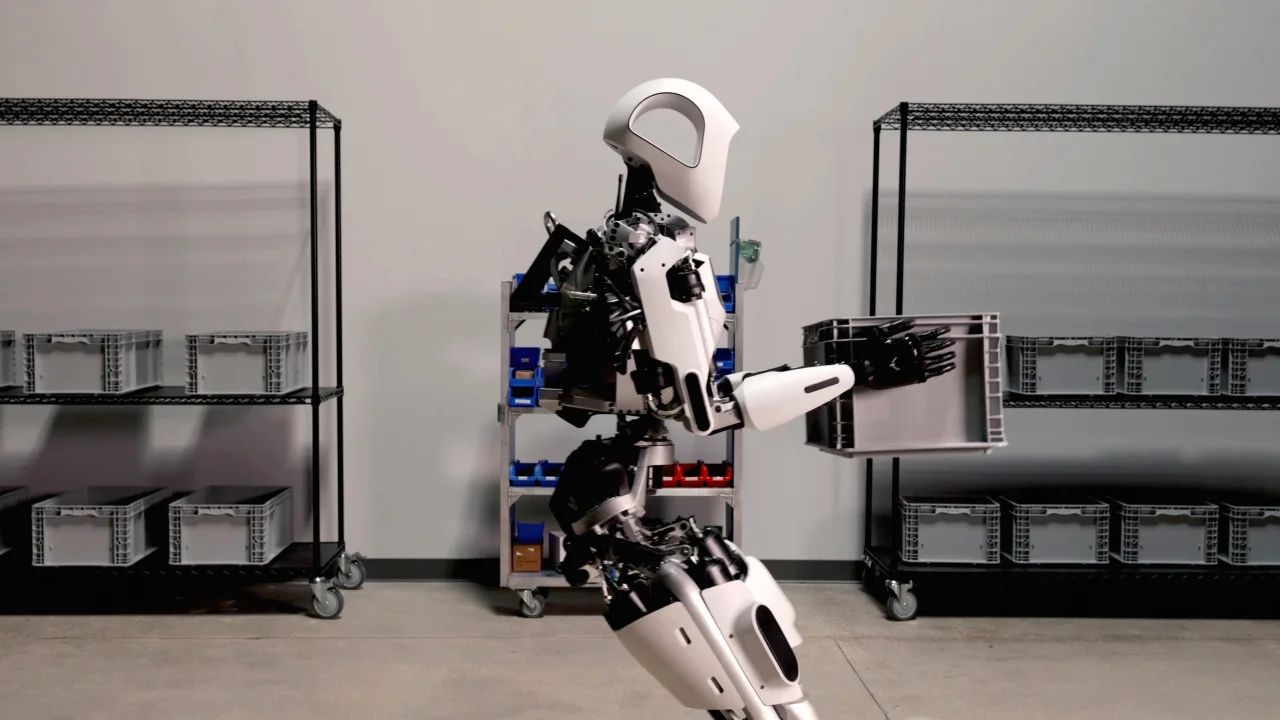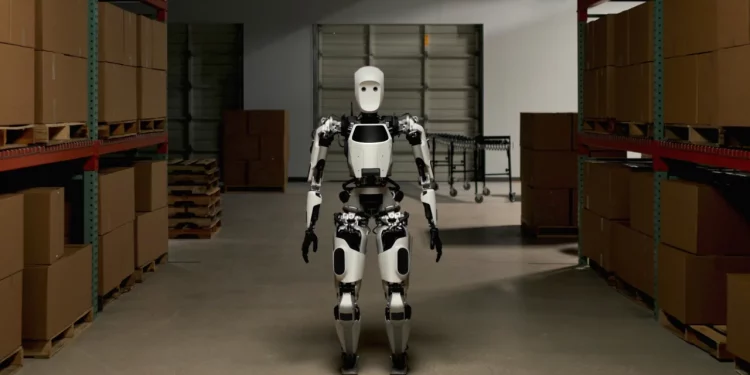The future of robotics is taking a giant leap forward as Austin-based startup Apptronik introduces their latest creation, a remarkable humanoid robot named Apollo.
In a world where robots are stepping into “dull, dirty, and dangerous” roles, Apptronik envisions a reality where Apollo and its kind will work alongside humans, making strides in the logistics industry and paving the way for lunar exploration.
Apollo, standing at 5 feet 8 inches and weighing 160 pounds, has left science fiction far behind, offering a glimpse into a world where robots boast a human scale. But this is not just about appearances; Apollo is designed to be practical and safe.
For the team at Apptronik, safety is paramount, with Apollo employing electricity rather than traditional hydraulics, and boasting a replaceable four-hour battery for a 22-hour workday.
To avoid the eerie “uncanny valley” effect that can unsettle humans when interacting with humanoid robots, Apptronik has invested in a design that is approachable and friendly.
Digital panels on Apollo’s chest communicate battery life, tasks, completion times, and future actions, ensuring clear communication between humans and their robot companions.
At the heart of Apollo’s design are its actuators, or robot muscles, which empower it to move and manipulate objects like a human.

The design is inspired by the team’s past work on NASA’s Valkyrie robot, originally developed at the Human Centered Robotics Lab at the University of Texas at Austin. Now, the ambitious aim is to create a versatile, all-purpose robot, a “software update away from doing a new task or a new behavior.”
While Apollo’s initial role is set in logistics, the long-term vision stretches beyond warehouses. Jeff Cardenas, CEO of Apptronik, envisions Apollo venturing into construction, electronics production, retail, home delivery, and even elder care.
This ambition is fuelled by advancements in cameras and artificial intelligence systems, making robots like Apollo more adaptable and affordable.
With plans to be in full commercial production by the end of 2024, Apollo is poised to make a real impact on multiple industries.
Apptronik’s vision is nothing short of revolutionary, and as the robotic workforce evolves, one can’t help but wonder: What other feats will these intelligent machines achieve? The story of Apollo has just begun, and the possibilities are as boundless as the cosmos itself.












